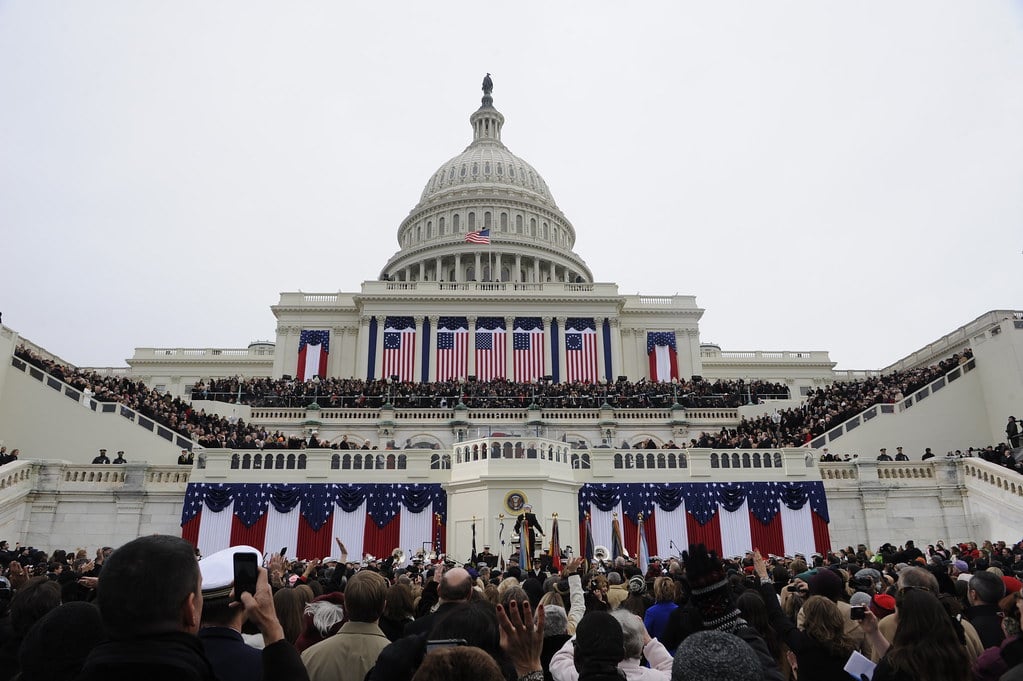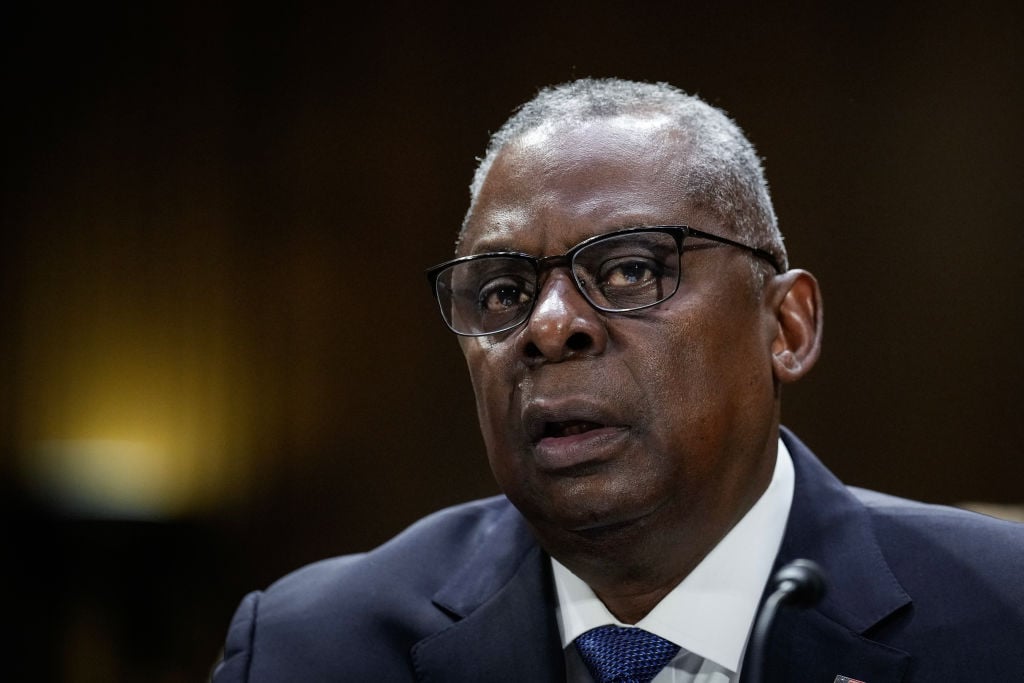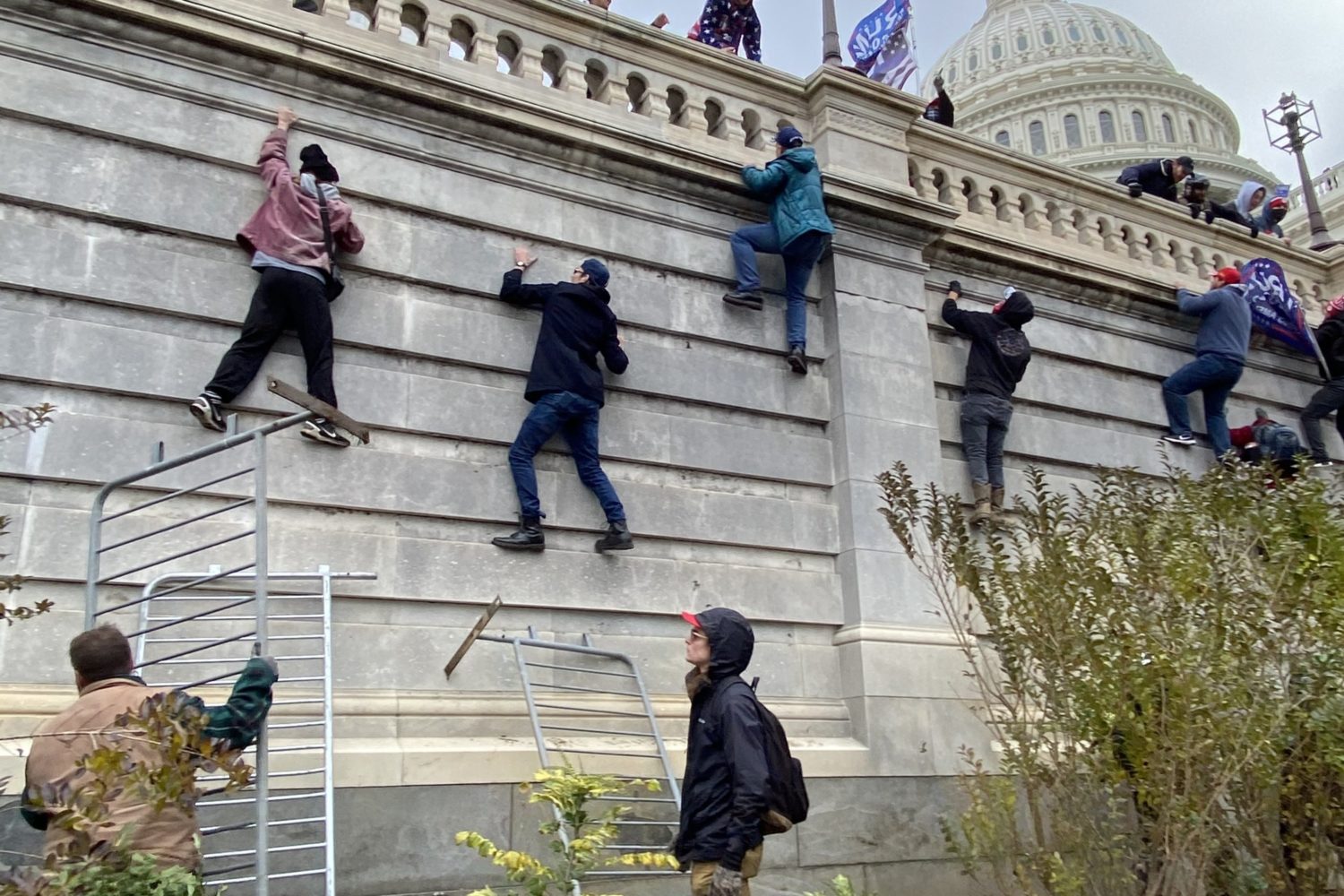The lead chair of President-Elect Joe Biden’s inaugural committee said Tuesday that while Biden’s swearing in ceremony will likely take place in its traditional spot on the West Front of the U.S. Capitol, most other inauguration related festivities will be virtual.
James Clyburn, the Democratic congressman from South Carolina and House Majority Whip, made the comments this morning during an appearance on MSNBC’s Morning Joe.
Yesterday, Clyburn was named the lead chair of the Biden’s inauguration committee, which is made up of five co-chairs, according to CNBC. The other co-chairs of the committee are Los Angeles Mayor Eric Garcetti, Michigan Gov. Gretchen Whitmer, Delaware Rep. Lisa Blunt Rochester, and Louisana Rep. Cedric Richmond. All five are Democrats.
But Biden’s committee does not determine all the logistics of inauguration week. The timing and setup of the actual swearing-in at the Capitol, as well as the traditional luncheon with the national political establishment, has been handled since 1901 by the bipartisan Joint Congressional Committee on Inaugural Ceremonies. The committee includes Senate leader Mitch McConnell and House Speaker Nancy Pelosi, and is chaired by Missouri Senator Roy Blunt, a Republican.
While the platform on the Capitol’s west front is under construction and committee has said the traditional outdoor swearing-in will happen—probably without many of the 200,000 people who usually get tickets via their members of Congress—the luncheon has yet to be finalized.
Awkwardly, Blunt has thus far not refuted outgoing President Donald Trump’s allegations that the election was stolen, or acknowledged Biden’s victory, much less congratulated her former Senatorial colleague and current president-elect—which could make for an awkward meeting in the event the luncheon happens.
Also unknown: Whether the inauguration will be preceded by the traditional meeting between outgoing and incoming presidents, or their ride from the White House to the Capitol. Though watching the body language in that particular exchange would represent a riveting virtual event, it’s safe to say it is unlikely.
Here’s a transcript of Clyburn’s comments to Morning Joe, via The Week:
Mika Brzezinski: What is inauguration going to look like, Jim?
Clyburn: Well thank you very much for having me first of all. Well look, we know what we’re in. Joe Biden has made it very clear that he is going to lead by precept and by example. And so we will set an example with this inauguration. It is going to be what we might call a hybrid. He’ll take the oath in the traditional way, but all of the inaugural festivities are going to be 80 percent what we would call virtual. So that’s what it’s going to be like and I think the American people, especially those who looked in on our convention saw what kind of connections could be made virtually. I thought the convention went extremely well. And that’s what we are going to do here—run this pretty much like we did our national convention…
Willie Geist: I know you’re still planning this out, congressman, you’ve got just over a month or so until January 20. But will we see for example President-elect Biden on the West Front of the Capitol for the swearing in? Have you figured out how that’s going to happen?
Clyburn: We have not figured out exactly how it’s going to happen but I see construction workers back here, it’s right down below my window here. So I can see them at work. So I would suppose that he would take the oath in its traditional fashion. We can do that while socially distancing. But the other stuff, the luncheon afterwards, probably won’t take place. As well as the festivities of the evening will probably be disbursed out among the fifty states and five or six territories.


![Luke 008[2]-1 - Washingtonian](https://www.washingtonian.com/wp-content/uploads/2017/10/Luke-0082-1-e1509126354184.jpg)
















